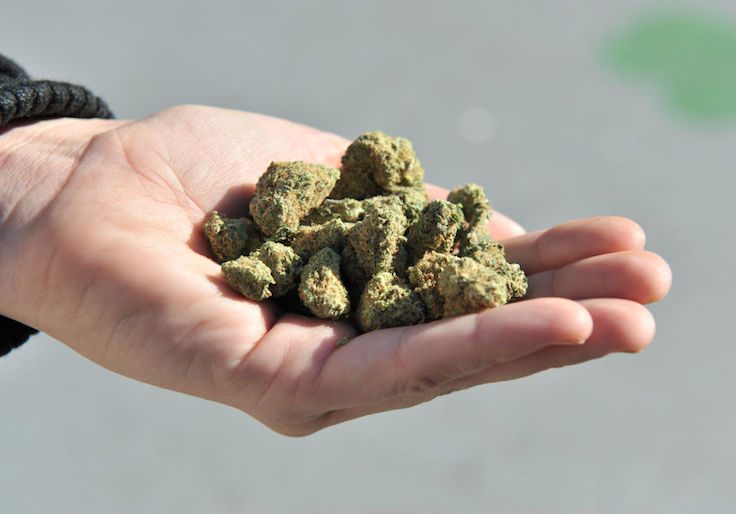A top adviser with the Bernie Sanders campaign repeated questionable claims and statistical myths to push the Vermont senator's marijuana legalization plan.
Josh Orton, who serves as national policy director with the Sanders campaign, called legalizing marijuana a "criminal justice issue" and a "racial justice issue" during an appearance on Hill.TV's Rising. He also linked the criminalization of marijuana to mass incarceration. Orton's claims, however, do not match the facts.
"Bernie looked and sees the horrific damage that the war on drugs has caused, both for the criminal justice system and as a matter of racial justice," Orton said. "All you have to do is look around to see the terrible mass incarceration, the terrible economic hit that communities have suffered, to see that we have to take dramatic action, bold action, right now."
Sanders released a new proposal to federally legalize marijuana on Thursday at 4:20 p.m. In debuting the plan, Sanders also explicitly linked marijuana legalization to ending the "horrifically destructive war on drugs."
Data tell a different story. Just 14.8 percent of state-level offenders are incarcerated for drug-related offenses, while only 3.5 percent are incarcerated for any type of drug possession. Although there are no reliable estimates of the number of marijuana offenders, criminologist John Pfaff told the Washington Free Beacon that "something on the order of 1 percent of all [people] in prison" are there for marijuana.
Orton also said that marijuana incarceration is racially discriminatory, claiming that "people of color are four times more likely to be incarcerated for marijuana, even though marijuana usage is about even across all people." There are no good estimates of the racial composition of incarcerated marijuana offenders, but roughly equal shares of white, black, and Hispanic offenders are incarcerated for drug offenses.
The Sanders campaign referred the Free Beacon to a 2013 study which found that African Americans were four times more likely to be arrested for marijuana offenses, but was silent on the issue of incarceration. Arrests, particularly for drug possession, do not reliably lead to prosecution or incarceration.
Furthermore, research from the Drug Policy Alliance has found that states that legalized marijuana maintained racial disparities in arrests for marijuana-related offenses such as underage consumption. The DPA found that Black and Hispanic people remained substantially more likely to be arrested. This result is usually interpreted as indicating that forces other than criminalization drive racially disparate patterns in arrests.
During the interview, Orton made two other questionable claims about marijuana. He claimed "marijuana use is rampant, it is widely used." But federal data show that 84 percent of Americans over 12 claim not to have used marijuana in 2018. Orton also claimed that "there's never been an overdose death because of marijuana"—but in May, a Louisiana coroner claimed to have identified just such a death. In general, overuse of modern, high-potency marijuana has been linked to serious signs of illness, including cannabinoid hyperemesis.
Orton's comments reflect a broader strategy among 2020 Democrats who have consistently linked marijuana legalization to criminal justice reform, in spite of the scant evidence of a connection between the two. This may be because marijuana legalization is widely popular, while changes that would substantially reduce the prison population, such as freeing violent offenders, draw widespread public opposition.
